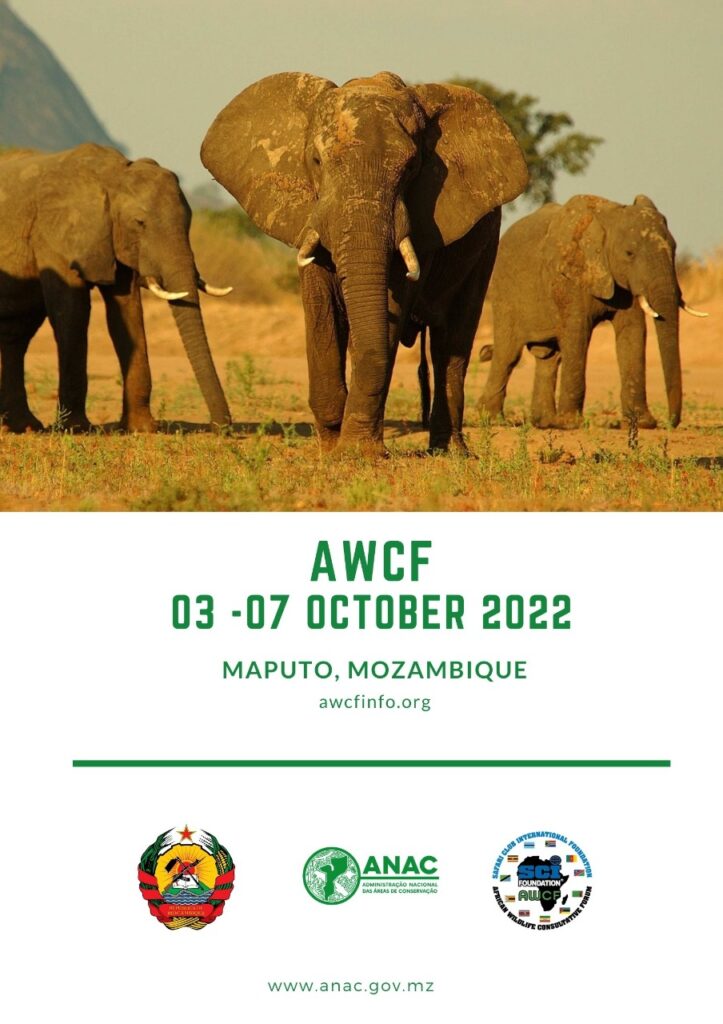SCI Foundation Continues Longstanding Leadership with the African Wildlife Consultative Forum (AWCF)
By: Joe Goergen

Planning is well underway for SCI Foundation’s historic 20th anniversary African Wildlife Consultative Forum (AWCF) to be held in Maputo, Mozambique from October 3-7. SCIF has hosted this high-level event for 20 years, bringing together a diverse group of stakeholders, senior government officials, professional hunting association leadership, community-based support organizations, international policy experts and wildlife biologists to discuss priority and emerging sustainable use wildlife conservation issues across Africa.
Last year’s event was a hybrid conference in Kasane, Botswana. The discussions centered around Botswana’s reopening of tourist hunting for community benefits, regional elephant management, and leopard research.
Trophy import ban proposals from around the world including the United States, United Kingdom, and legislative capitols elsewhere, were another focus for the AWCF group. Participants from Africa agreed that the conservation threat of import bans on hunting trophies, made by misinformed Western activists and politicians, risks the sustainability of African conservation programs based on consumptive wildlife tourism, the right of sovereign African nations to manage the wildlife in their respective countries, and sustainable development benefits to rural communities and indigenous peoples. Read more about last year’s forum here.
SCIF and AWCF participants will continue these critical discussions in Maputo, with specific focus on African leadership at the Convention on international Trade in Endangered Species of Fauna and Flora or CITES, and regional strategy to the 19th Conference of the Parties agenda. For too long, CITES unfortunately has been a top-down control-minded Convention with a growing influence from Euro-American protectionist NGOs seeking to expand CITES’ role into areas of national wildlife management and even zoonotic disease prevention. Read more on SCI/F’s latest work at CITES here. African leadership and engagement from local communities is critical for the long-term conservation of wildlife.
The events throughout the week will include sessions on CITES, a new communications messaging workshop for attendees, business of professional hunting associations, and community-based conservation issues, among other agenda items. Importantly for our hunting members, SCI will also host a discussion on international import bans from the U.S. and the threats out of Congress.
The management of African wildlife is a right that belongs to African governments and communities, not Western ideologists or animal rights campaigners. SCI and SCIF will always advocate for the rights of Africans and support science-based wildlife management that must include sustainable use hunting. We look forward to celebrating our 20-year history in Maputo and continuing the collaboration on conservation issues across southern Africa.
